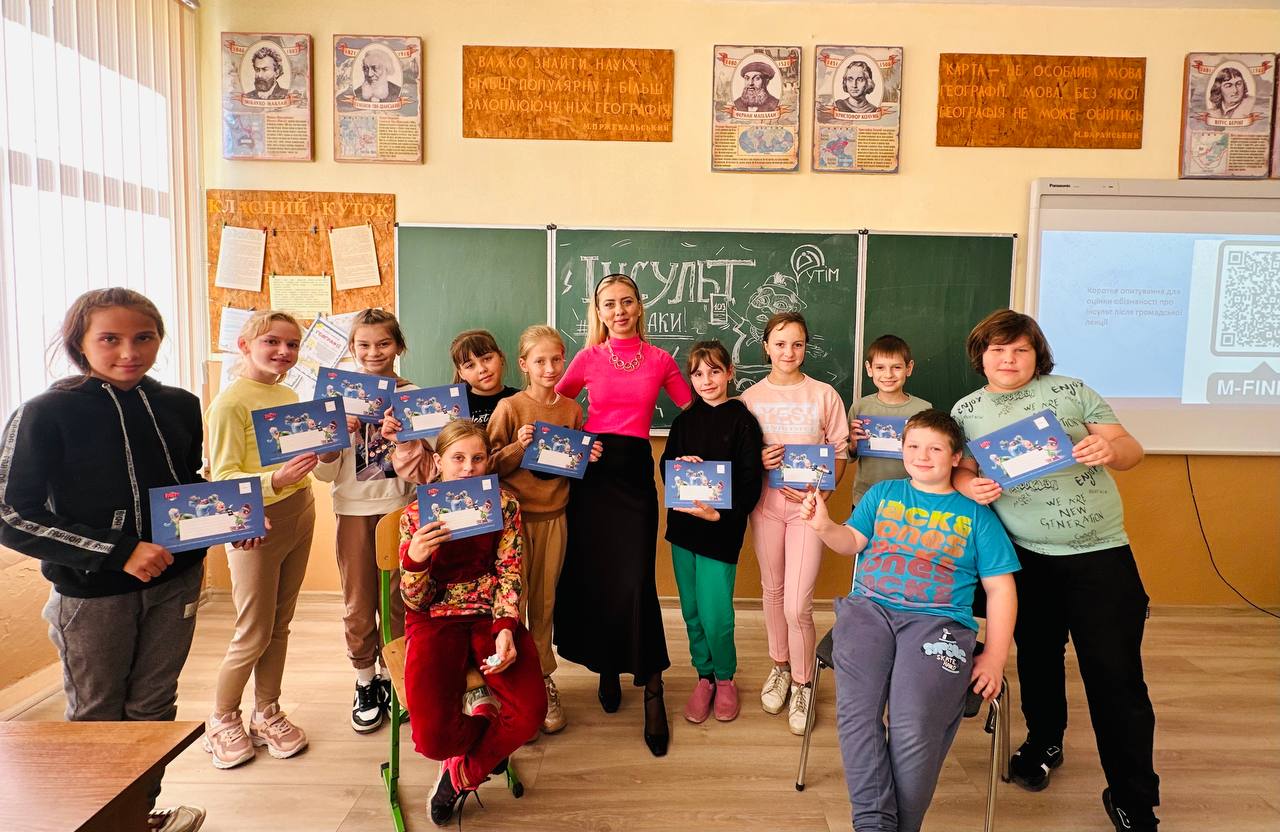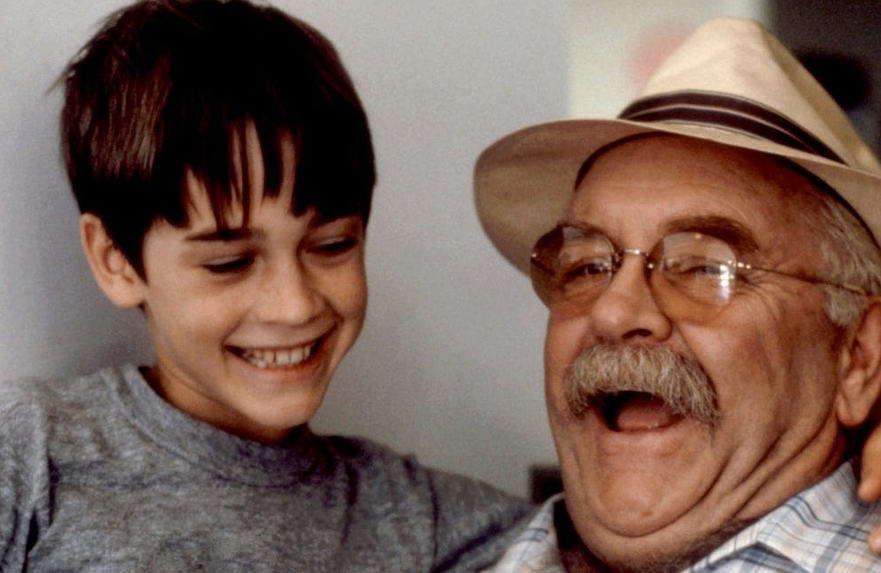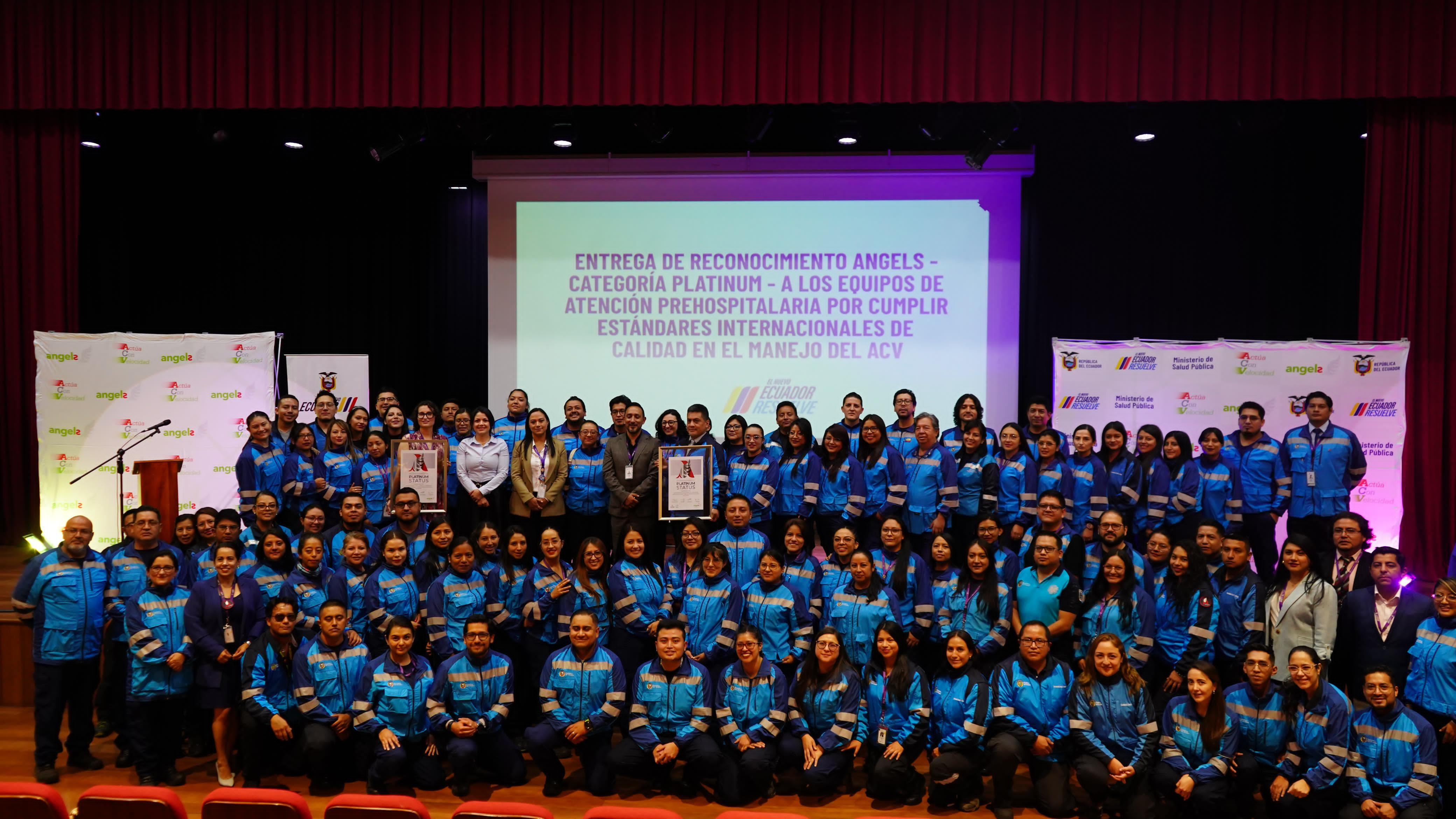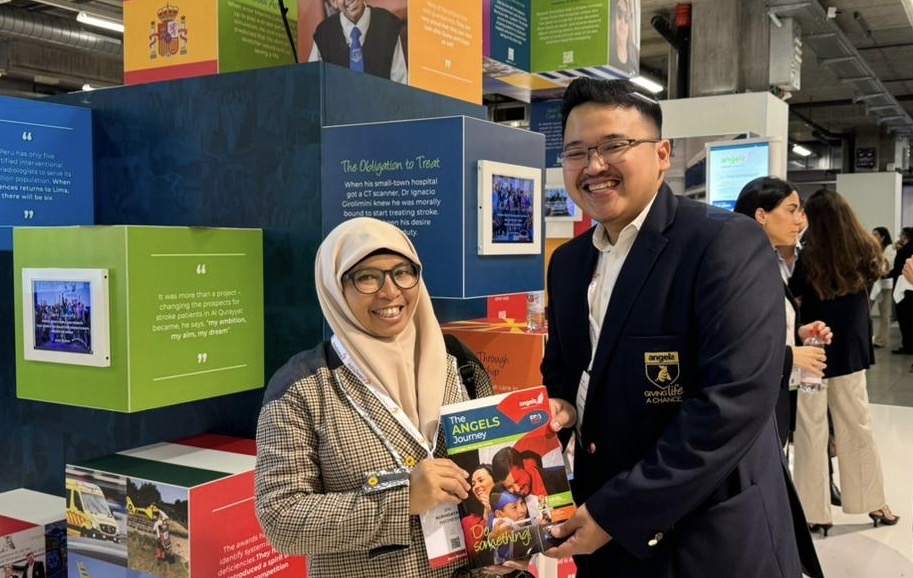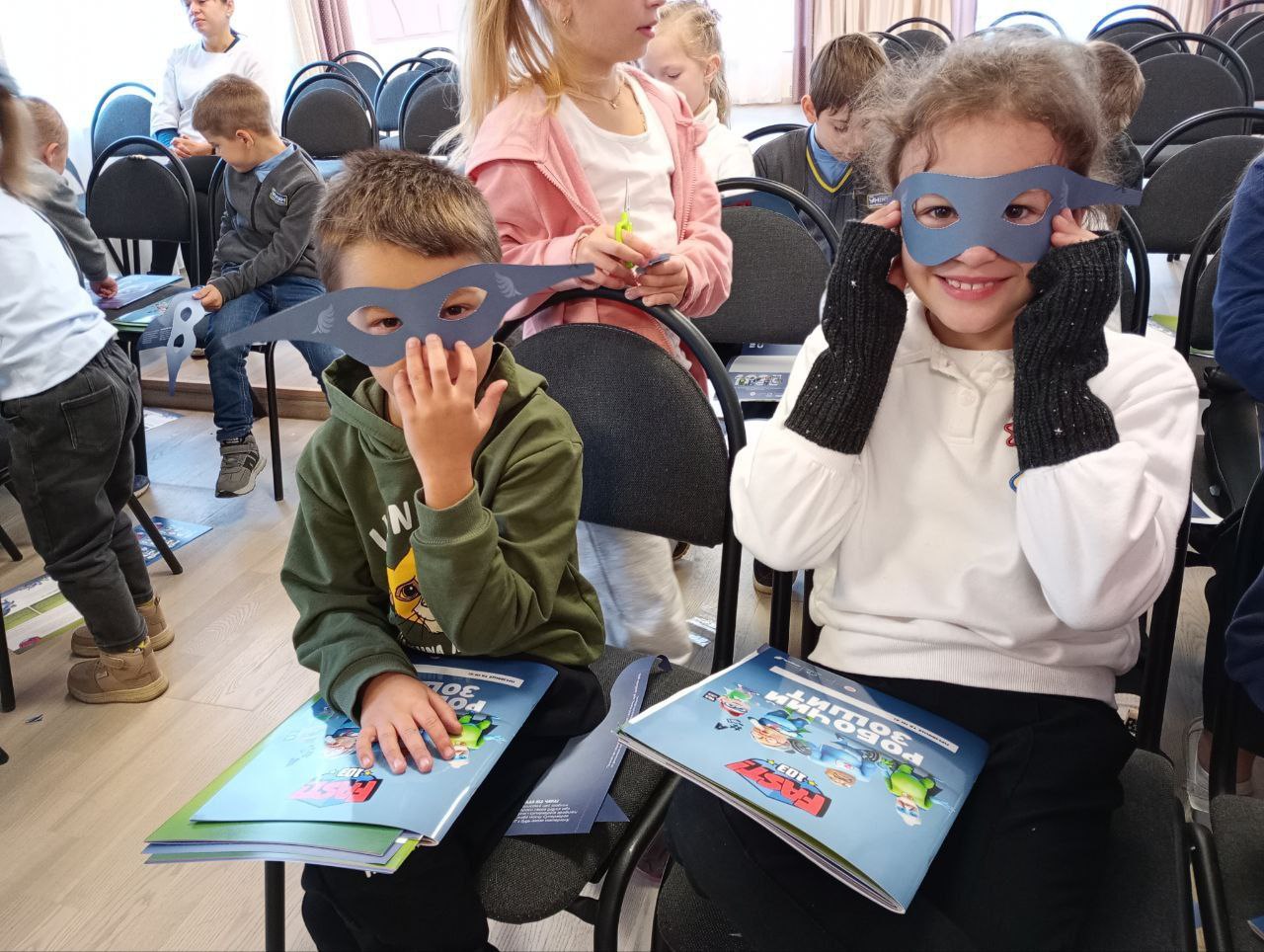
Il numero tre è sempre stato investito con un potere misterioso. Il modello più breve e più memorabile rilevabile dai nostri cervelli alla ricerca di pattern, il numero tre è stato utilizzato per esprimere alcuni degli ideali nobili dell'umanità, come il pianto della Rivoluzione francese per libertà, uguaglianza e fraternità, o il motto olimpico: più rapido, più alto, più forte.
La regola di tre è in sé acquisita in tre parole, nella frase latina omne trium perfectum, il che significa che tutto ciò che si presenta in tre è perfetto, oppure, ogni gruppo di tre è completo.
L’ortografia fatta dal numero tre dà un tocco in più a incontrare un trio di 20 neurologi che si dedicano alla missione di educare i cittadini dell’Ucraina sull’ictus.
Incontrate, in nessun ordine particolare, la Dott.ssa Oleksandra "Sasha" Holod of Kamianets-Podilskyi in Ucraina occidentale; Iryna Sheredko, 25 anni, da Novoyavorivsk vicino al confine con la Polonia; e Yuliia Mykolaienko, 28 anni, del Sumy Central City Clinical Hospital, vicino al fronte nordorientale.
Sono amici intimi e colleghi, ma se immaginate che siano stati amici migliori per sempre, sareste sbagliati. Il primo e finora unico incontro di persona si è tenuto nell’aprile del 2023 presso la Young ictus Physicians School di Kiev.
"Erano cinque giorni di apprendimento, lezioni e pause caffè", afferma Yuliia. Durante le pause caffè, i primi legami di amicizia furono fuliggiti e fu fondato un terreno comune.
Il primo progetto congiunto, avviato da Sasha, è andato in funzione solo 11 giorni dopo la fine della scuola. Il 9 maggio, in concomitanza con la giornata di sensibilizzazione sull’ictus in Europa, hanno creato un account Instagram per la Società ucraina di medicina dell’ictus (UTIM) come piattaforma per condividere informazioni sull’ictus. Poi hanno portato la piattaforma offline, a scuole e town hall e, a volte, a canili per l’ispezione dell’aria, con il loro progetto di formazione pubblica, kNOw_ ictus.
Le loro ragioni erano chiare: "In Ucraina c'è un livello piuttosto basso di consapevolezza pubblica sull'ictus, che porta a una maggiore mortalità e invalidità da ictus rispetto ai Paesi europei. È particolarmente importante in tempi di conflitto per i cittadini ordinari avere le conoscenze necessarie per gestire molte situazioni di emergenza diverse."
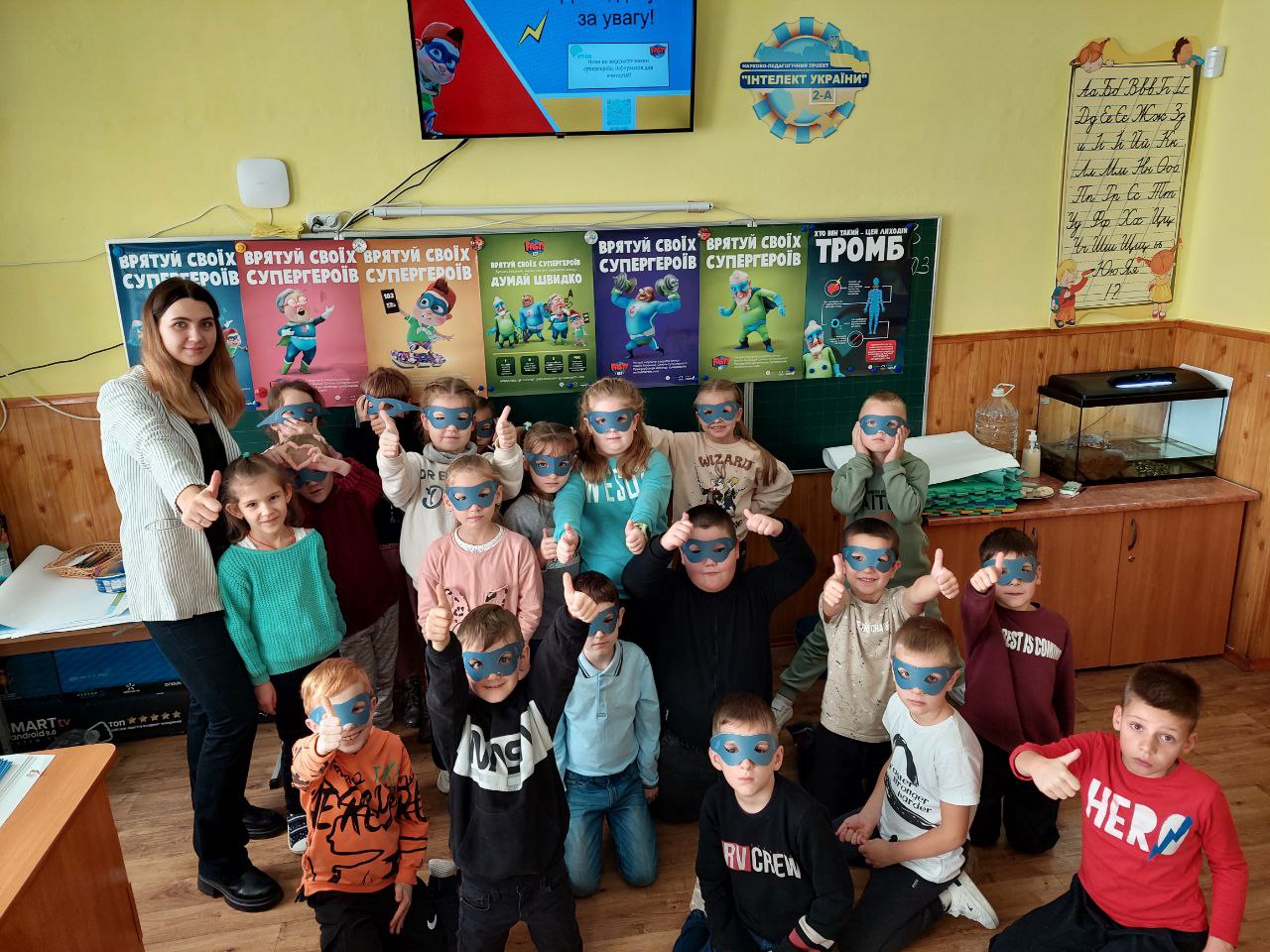
OGNI serie di tre può essere completa, ma per il loro progetto di avere il raggio d’azione previsto, Yuliia, Iryna e Sasha hanno avuto bisogno di altre persone che condividevano la loro visione. Sono profondamente grati a coloro che lo hanno fatto.
"Venti partecipanti provenienti da 16 regioni dell'Ucraina hanno aderito al progetto, investendo il loro impegno e tempo semplicemente in modo che più persone sappiano come salvare la vita di una persona colpita da ictus. Il progetto è stato interamente guidato dall’entusiasmo dei partecipanti che non si aspettavano alcun premio finanziario. Dal momento che erano anche medici della stroke unit o stagisti medici con esperienza di tali pazienti, tutti hanno compreso che la consapevolezza pubblica avrebbe aumentato il numero di persone che avrebbero cercato aiuto tempestivamente se stessero o qualcuno nelle vicinanze avessero avuto un ictus."
Un progetto di sperimentazione a maggio ha raggiunto 350 studenti delle scuole superiori e ha aperto la strada a un impegno più ambizioso: l’implementazione completa del progetto kNOw_STROKE che avrebbe come obiettivo un numero maggiore di regioni e una categoria di età più ampia. È stato così che Yuliia, Iryna e Sasha hanno fatto conoscere una famiglia di supereroi che sono stati bloccati nella battaglia contro il "coagulo malefico".
Con il supporto del Consulente Angels Lev Prystipiuk e della specialista delle comunicazioni Anastasiya Klysakova, hanno reso nota da molto tempo l’iniziativa di sensibilizzazione degli eroi FAST nell’ambito della loro campagna didattica e, nel corso di 50 eventi in 16 regioni tra settembre e dicembre, hanno scoperto qualcosa che gli educatori hanno scoperto, che è più facile e decisamente più divertente impartire nuove conoscenze ai bambini della scuola primarie che a gruppi di tutti gli adolescenti che conoscevano.
"L'esperienza degli eroi FAST è insolita ma molto vivida", ha scritto Yuliia in seguito in un articolo condiviso con Angels. "I bambini hanno notato molto rapidamente le peculiarità dei personaggi principali e nel processo di apprendimento logico sono arrivati a conclusioni su come l'ictus si è manifestato in ciascuno di loro, anche prima che ne parlassi."
Indeterred by air raid alert that punctuated lezioni in citys in nordoriental Ukraine, il progetto kNOw_ ictus ha aggiunto 50 punti alla mappa su cui l’World Stroke Organization registra le attività di sensibilizzazione sull’ictus in tutto il mondo sul proprio sito web. E i medici che l’hanno iniziato hanno raccolto alcune informazioni preziose sul lavoro di squadra:
"In tutto il progetto abbiamo avuto l’opportunità di capire che aiutare un paziente con ictus è il risultato del lavoro di squadra e siamo estremamente felici di far parte di questo grande team ispirato. Forse questo è l’idea chiave che abbiamo portato via per la nostra collaborazione
con il progetto Eroi FAST e altri partecipanti – che la questione dell'ictus riguarda tutti noi, non solo la comunità medica, e solo attraverso il lavoro di squadra su ogni fronte possiamo ottenere di più."
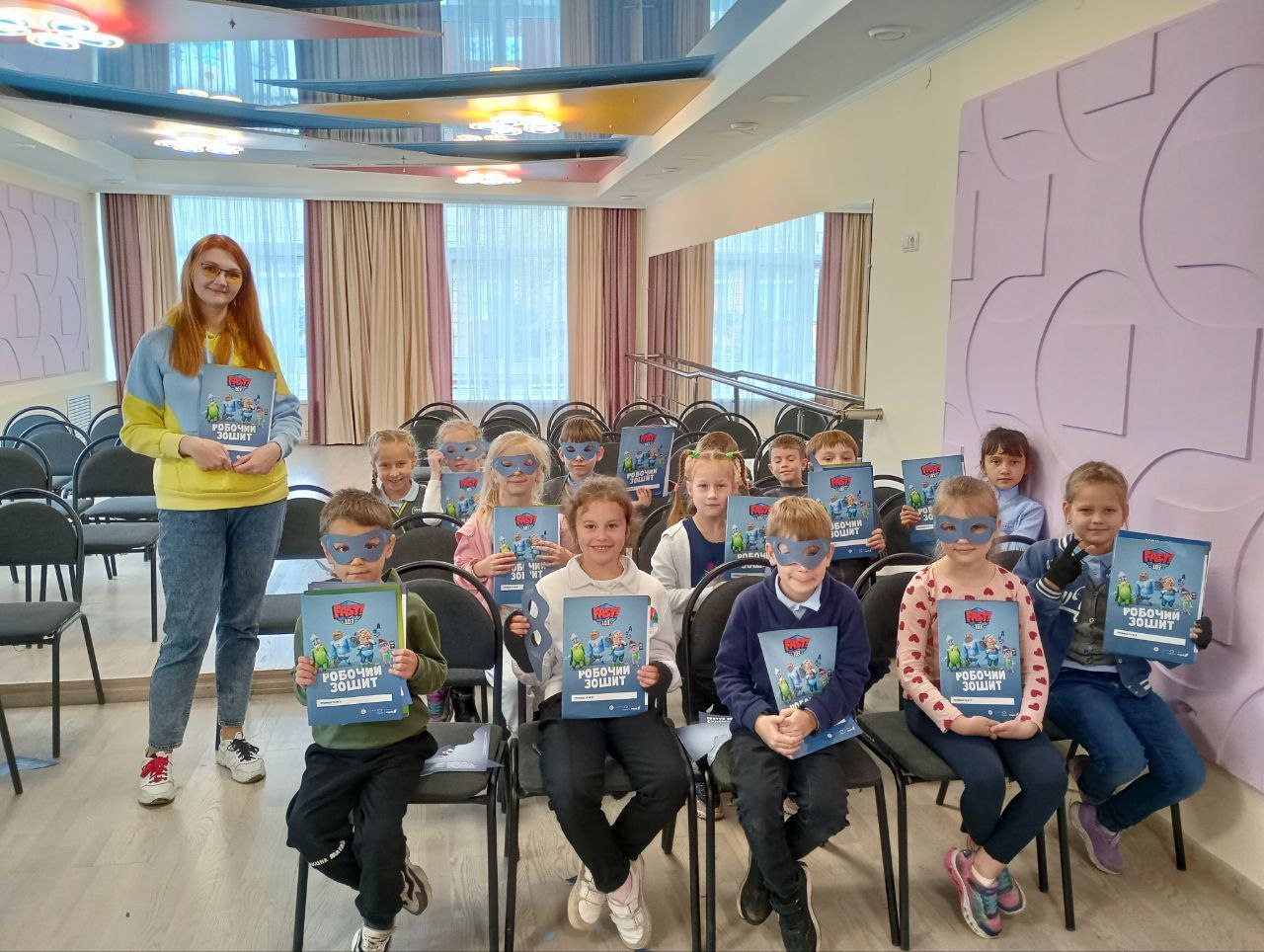
È qualcosa di magico
La affinità formata durante le pause caffè ha continuato a crescere attraverso uno scambio di messaggi di testo in quanto i tre contenuti co-creati per l'account Instagram UTIM, ma non solo parlano di progetti, parlano anche come amici, afferma Sasha.
Fin dall’inizio, durante un caffè a Kiev, avevano parlato apertamente del loro lavoro e delle loro esperienze condivise, comprese quelle tristi.
All'inizio aveva trovato strano essere così diretta anche nelle situazioni quotidiane dolorose, afferma Yuliia. "Nella mia esperienza precedente, parli solo delle cose buone e c'è silenzio quando le cose vanno male. Ma è molto importante capire che tutti noi abbiamo gli stessi problemi, che va bene, che è normale."
Sebbene si tengano costantemente in contatto, non tutti e tre sono stati nella stessa città dallo scorso aprile. Yuliia e Sasha si sono incontrati a dicembre, quando Sasha è venuta a Kiev per un workshop. Dicono: "Abbiamo perso molto Iryna."
YULIIA, Iryna e Sasha sono diventati neurologi attraverso diverse vie. Iryna ha seguito il suo ginecologo nonno in medicina da un certo senso di desiderio di aiutare gli altri. La neurologia ha offerto l’attrazione dell’ignoto: "C'era molto da imparare sull'eziologia della malattia, sulle opportunità di esplorare e scoprire qualcosa di nuovo."
Yuliia è stata affascinata dal cervello umano e, come stagista, è venuto a conoscenza del crescente interesse nella la cura dell'ictus in Ucraina: "La trombolisi stava diventando sempre più diffusa, vi erano molte informazioni e sempre più domande. Era una novità, una prima in neurologia, e mi ha colpito molto".
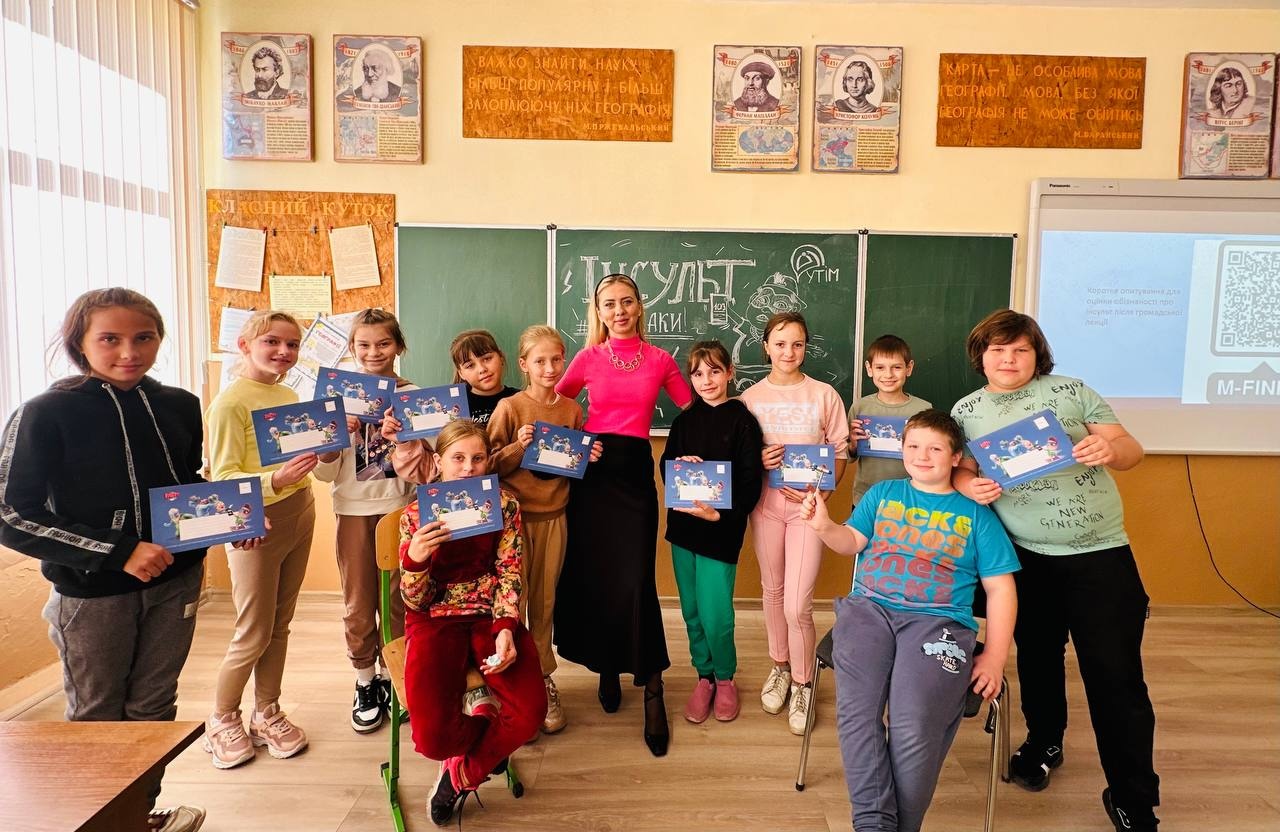
Sasha era un chirurgo, ma durante il suo tirocinio ha osservato la trasformazione in una paziente sottoposta a trombolisi per ictus ischemico. "Cambiò la sua vita", dice. "Si è migliorato".
È a questo punto che i loro percorsi si intersecano. Iryna dice: "Con accesso a trombolisi e trombectomia c'è la possibilità che qualcuno entri con emiplegia e che in poche ore possa avere una persona sana. Mi sono reso conto che avrei potuto aiutare queste persone.
E Yuliia: "È fantastico: è qualcosa di magico quando qualcuno cambia, in modo che possa parlare con te. Sono venuti con emiplegia, e poi un'ora dopo si stanno scuotendo la mano e dicendo grazie, dottore."
Per creare più magia, hanno bisogno di più pazienti colpiti da ictus per raggiungere i loro ospedali entro la finestra di trattamento, e non stanno aspettando che qualcun altro faccia in modo che ciò accada.
Così come si potrebbe ammirare la loro determinazione ad aumentare la consapevolezza sull’ictus nonostante la guerra, la verità è che è anche a causa della guerra.
"Abbiamo molti soldati feriti", afferma Iryna, che richiamano alla mente immagini inconcludenti di lottanti che tornano a casa con lesioni devastanti e che cambiano la vita. "Non abbiamo bisogno di più invalidità a causa dell'ictus."
La conoscenza salva vite, afferma Yuliia. "In particolare ora, quando molti bambini sono con i nonni, possono essere gli unici a chiamare i servizi di emergenza e devono sapere cosa fare.
"In questo momento, qualsiasi conoscenza che possa salvare una vita è importante."
